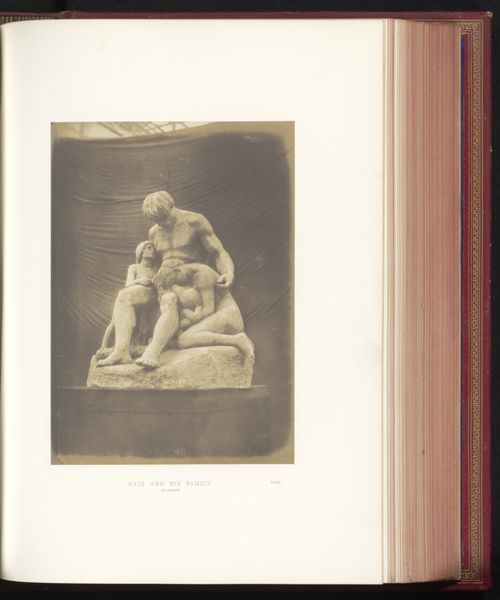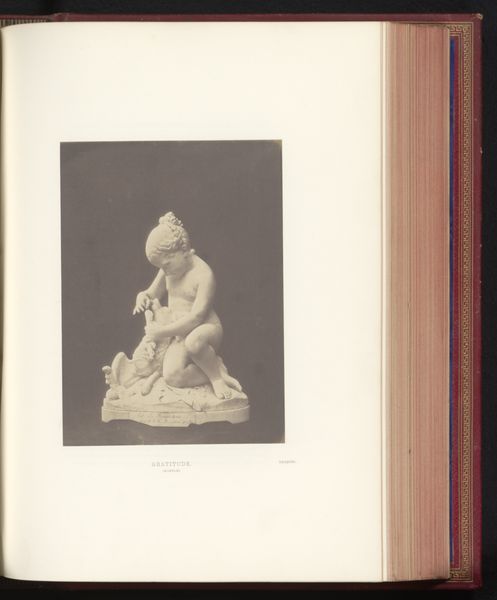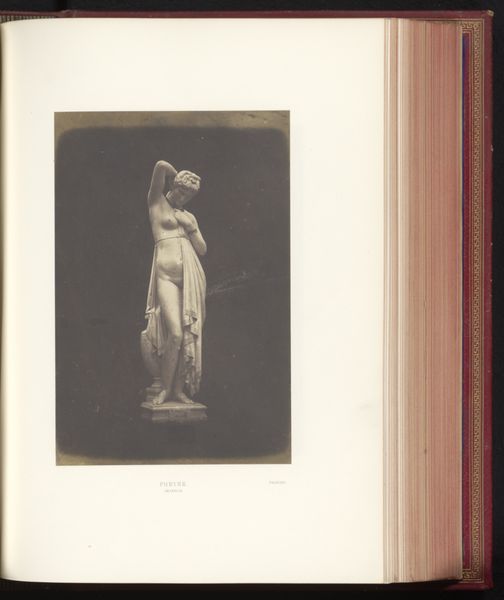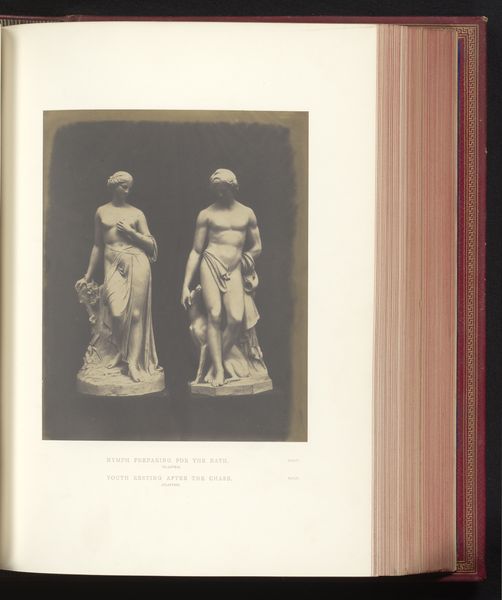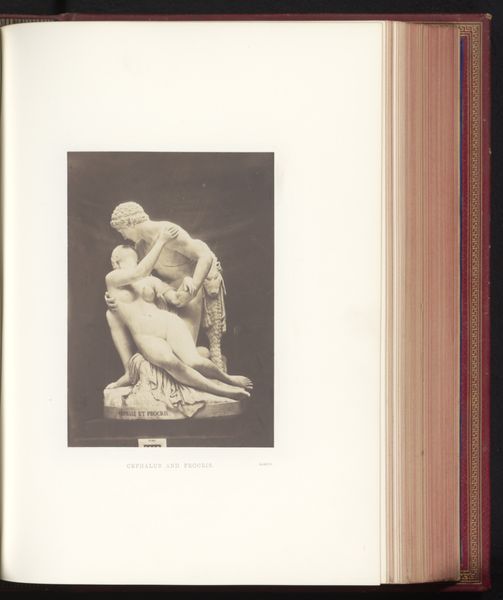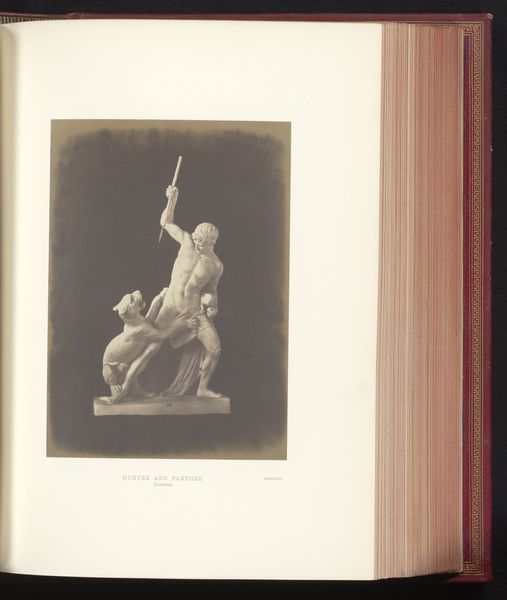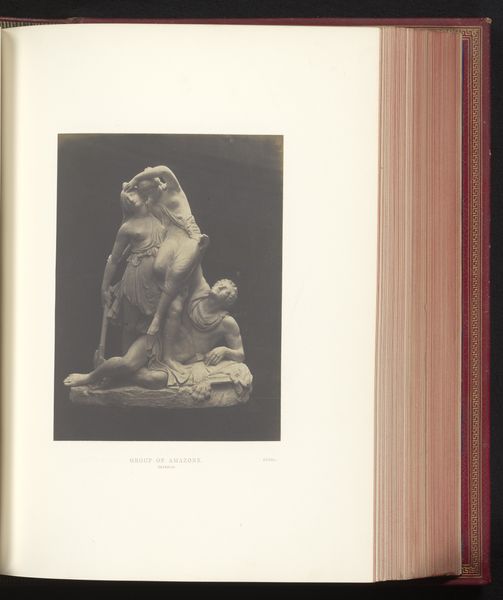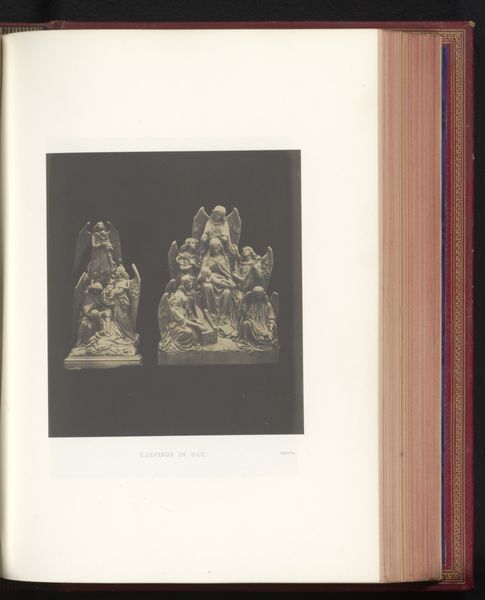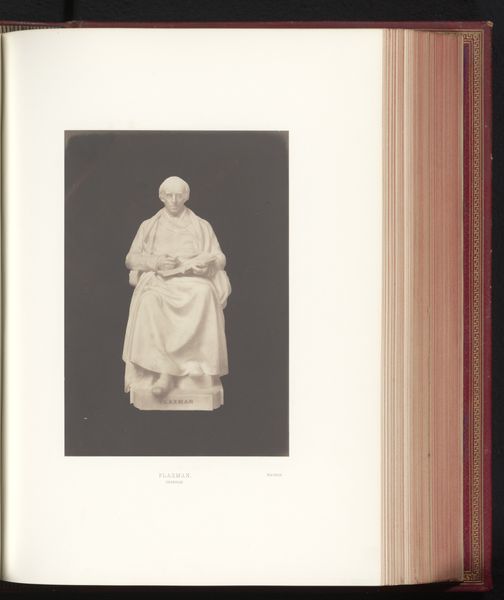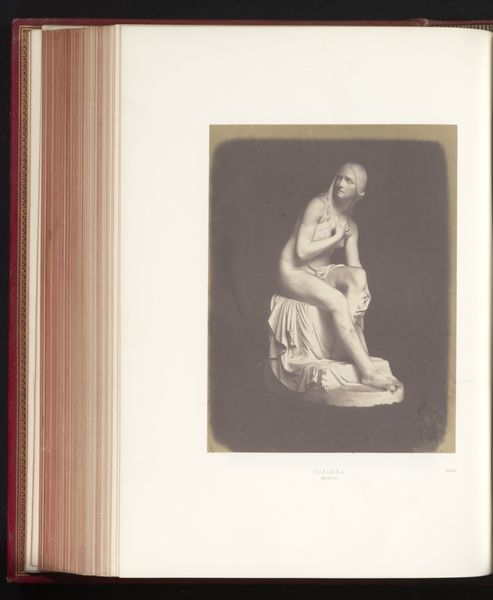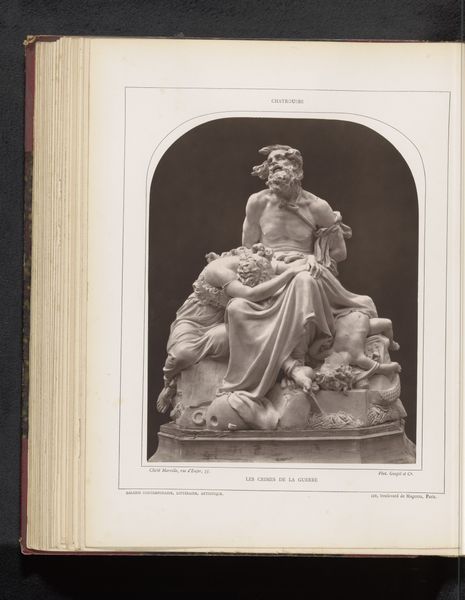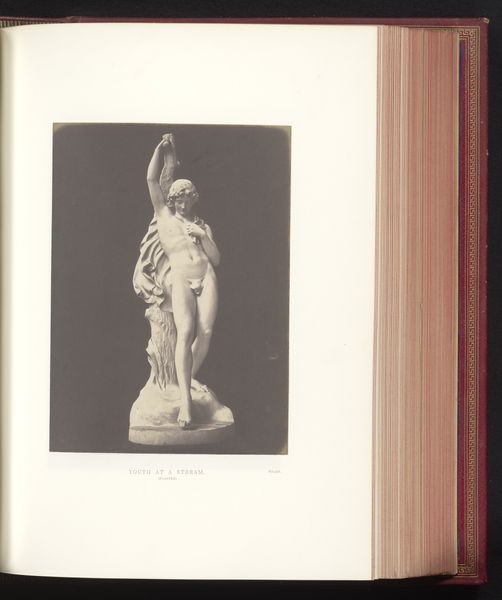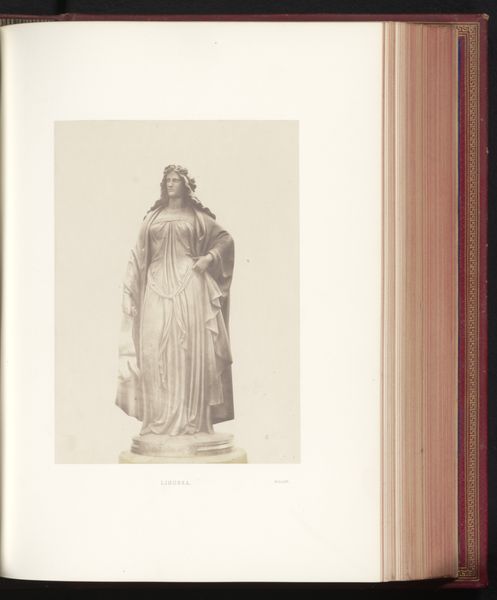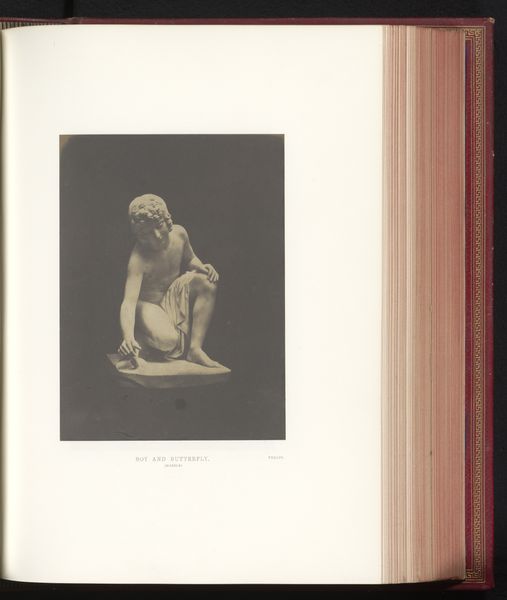
Sculptuur van cholera slachtoffers door Antoine Étex, tentoongesteld op de Great Exhibition of the Works of Industry of All Nations van 1851 in Londen 1851
0:00
0:00
Dimensions: height 207 mm, width 158 mm
Copyright: Rijks Museum: Open Domain
This image captures Antoine Étex's sculpture of cholera victims, displayed at the Great Exhibition in London, 1851, during a period marked by significant global cholera pandemics. Étex confronts us with a potent image of suffering. A woman, draped in classical garb, supports the limp body of a man, presumably a victim of the rampant disease. This sculpture serves as a stark reminder of the vulnerability and mortality that cholera brought to the forefront, particularly affecting the working classes. The Great Exhibition, intended to showcase industrial progress, inadvertently highlighted the stark inequalities exacerbated by such outbreaks. In a society grappling with rapid urbanization and industrialization, cholera didn't discriminate, yet its impact was far more devastating among the poor. Étex's sculpture, while neoclassical in style, challenges the idealization of the human form, forcing viewers to confront the raw reality of disease. It embodies the era’s fears, anxieties, and collective grief in a way that transcends its marble form.
Comments
No comments
Be the first to comment and join the conversation on the ultimate creative platform.
